Playing The Witcher again after reading the Books (spoilers)
By ll_Exile_ll 6 Comments
This will be the 1st of 3 blogs about my experiences playing the Witcher games again after reading the books.
The Witcher series is one of my favorite game franchises of all time. However, unlike some of my other time favorite game series such as Mass Effect and Zelda where I've played the games many times each, I've only played each Witcher game a single time. I've been wanting to do a full series playthrough back to back to back pretty much since finishing Blood and Wine early last year. Before doing so, I wanted to read the books, and over the past couple months I did just that.
I thoroughly enjoyed the books. It was an interesting experience having a general idea where the story would go based on things I remember from the games, but having very little notion of the specifics of how it would get there. Having played all the games first is probably not the best way to experience the saga, but it was nice to have a clear picture in my mind of how these characters look and speak (yes, I read the dialogue in the characters' voices in my head) and what locations like Toussaint, Skellige, etc. look like.
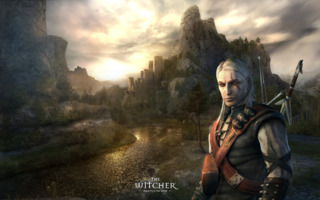
Even when I first played The Witcher years ago, before ever reading a page of the books or playing the two sequels, I thought it was a pretty flawed game. Not bad by any means, good even, but very rough around the edges. The combat is clunky, the animations are stiff, the visuals weren't great even for the time, and the voice acting is a mixed bag. The writing, storytelling, and decision making was the one part of game I thought was unarguably good at the time.
Playing the game with a 2017 perspective, knowing what I know about how good The Witcher 2 and 3 are, pretty much every aspect of the Witcher 1 seems worse now than it did when I first played it. With the added dimension of throwing the knowledge of the books in there, things get interesting.
There are a bunch of references to things from the books, some are good and some not so much. I enjoyed the subtle things such as Triss mentioning Vilgefortz in passing, knowing the origin of the Catriona plague (which no actual characters know the origin of, only the reader), your first silver sword originally being Coen's, etc.
I especially loved the two instances of conversations where there is a “right answer” response that you'd only know if you read the books. The first was you finishing the line “The sword of Destiny has two edges, you are one of them. The other is” and one of three dialogue choices is “death,” which is how Geralt completed that phrase in the books. The other is a conversation where Geralt is asked if believes in destiny, and the choices are “yes” “no” or “I believe in something more” which is an idea he ponders in the books.
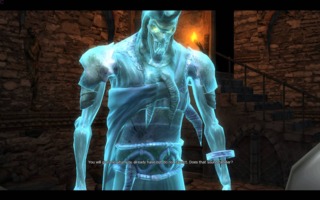
In addition to these, there are some more meaty callbacks to the books, such as Dandelion telling Geralt about how Regis died in detail and several characters from the books explaining how they originally met Geralt (Zoltan, Toruviel, etc.). However, for the ways these types of references and callbacks enrich the world of the game for people that have read the books, at its core I think the first game does book readers a disservice with the choices the writers made with the story.
The core issue stems from Geralt's amnesia. By having a Geralt be a completely blank slate that remembers nothing, he's essentially not Geralt. I certainly understand why they did this, they didn't want players to confused by 7 books worth of established world and character history, especially english speaking players who couldn't have read most of the books even if they wanted to when the game originally came out. It just works better for explanation and exposition if the main character is in the dark as much as the player, I totally get that.
However, I still don't think they straddled that line well. As we'll see when I get on to the Witcher 2 in the next blog, it's totally possible to tell a good and faithful Witcher story with an amnesiac Geralt, but they didn't pull that off in the first game. The I have two major issues with the storytelling in The Witcher.
The first issue is how characters that know a lot about the events of Geralt's past don't tell him everything and leave out important details. I know much of that isn't relevant to the main plot, but Geralt's return to world after 5 years is still big deal, and there are three characters in the game that were present at his “death” and none of them really tell him everything. Triss glosses over most of it and doesn't really go into any detail, Zoltan simply says he was stabbed by a pitchfork during a pogrom and died, and Dandelion is the most infuriating.
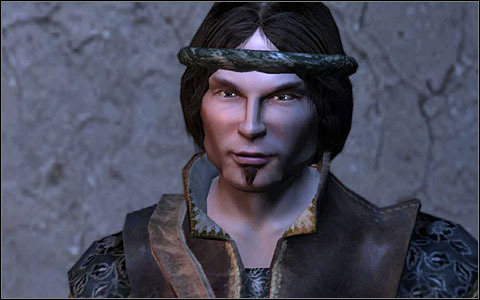
Dandelion actually tells mostly the whole story. Pogrom in Rivia, Geralt was protecting nonhumans and got stabbed by a pitchfork, Triss summoned a hailstorm, Geralt was bleeding out and disappeared in a boat and a unicorn was present. He mentions everyone that was there, Zoltan, Triss, Yarpen Zigrin, the perceived ghostly presence of everyone that had died on their journey, and that's it. No mention at all of Yennefer and Ciri also disappearing alongside Geralt, no mention of the fact that Ciri is the one that took them away.
In fact, Yennefer and Ciri aren't mentioned at all by any of the main characters that knew them. I get that Geralt's memory is gone and he doesn't know who these people are, but you'd figure Dandelion would at some point mention the two most important people in Geralt's life. One would think that an effort to help someone with amnesia remember their life would include telling them about people that were very important to them, but apparently that never occurred to Triss, Zoltan, or Dandelion.
Triss also comes across as a far less sympathetic and likable character when viewed from a certain perspective. She and Geralt had a brief fling during one the many off-again phases of his relationship with Yennefer, but she was never going to replace Yennefer in his eyes. Despite knowing this, she was always infatuated with him. Now, Geralt basically falls into her arms with no memory, and she leaves him flailing in the dark. Instead of telling him about his past, the love of his life and daughter that could be out there somewhere (they all vanished from the world together, and obviously he's alive), she instead chooses to basically keep him all to herself and let him continue to be with her in ignorance.
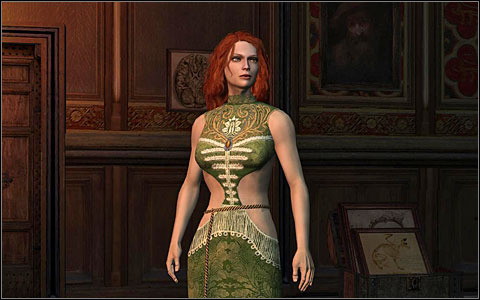
As an aside, when you choose Triss over Shani she says “so now you've truly forgotten about her?” She's presumably talking about Shani, but in my headcanon she subtly referring to Yennefer.
Despite the issue I had with the extreme omissions by other characters when talking about Geralt's past, that's more of a nitpick about wanting more connections to the books. The second major issue I have is more a situation where the story seems much worse with the context of the books than it did when I played it without that context.
Essentially, Alvin serves a blatant stand-in for Ciri and Triss as a blatant stand-in for Yennefer. Alvin is a child of Elder Blood and Triss and Geralt basically adopt him and try to help him deal with his abilities. Take that sentence and replace the names and you have a one sentence generalization of the books. It feels to me like CDP Red didn't know if they wanted the game to be a direct continuation from the books or a reboot of the story in video game form with some changes in characters, so they split the difference.
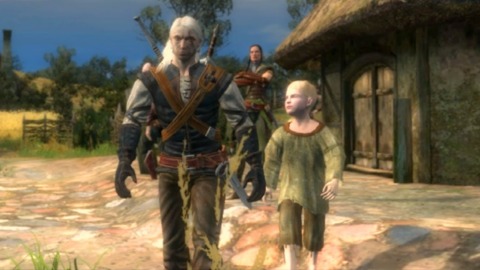
The whole idea that Geralt, without his memory, finds himself in such a similar situation is just kind of dumb. That's not even accounting for the fact that Ciri was supposed to be the end of Lara Dorren's line and is herself a resurgence of the gene after it had gone dormant without manifesting extraordinary abilities in her direct ancestors. There's also the issue of Triss, who never once mentions that he had previously adopted a child of Elder Blood that was also on the run from various factions much like Alvin. It doesn't feel like a continuation, but a rehash that isn't told as well.
So, to conclude, the first Witcher game has a ton of references and callback to the things from the books that I thought were great. It does a great a job of bringing the world of the Witcher into video game form in a faithful way. Many of the characters are consistent with their book version and transition from page to pixel very well.
All that being said, the story is caught somewhere in between being a continuation of the books and a retelling of similar events. The game's complete refusal to even acknowledge that Yennefer and Ciri even exist beyond easter egg dialogue by an innkeeper in act IV is beyond frustrating. Alvin is a bad, underdeveloped character that is needlessly tied to core elements of the book saga in a very clumsy way and his related twist is super obvious.
Bottom line. The game would have been better if it didn't have anything to do with Elder Blood, Ithlinne's Prophecy, and the White Frost in any capacity. If they did want those elements in the story, Ciri and Yennefer should have been involved. Having the plot revolve around those elements without those two character involved was simply a bad idea, and one I think CDP Red realized given what they did with The Witcher 3.
I'm already well into the Witcher 2, so the next blog will be sooner rather than later.

Log in to comment